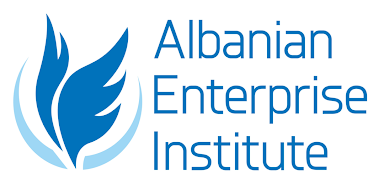Research carried out by

7 Key Takeaways: Cost of Politics
7 Key Takeaways: Cost of Politics
Population: 2.86 million
Head of Government: President Bagram Begaj
Ruling party/coalition: Socialist Party
Last election: 2021
Next election: 2025
Number of registered voters: 3.4 million (2021)
Annual salary of member of legislature: estimated at US$14,800
Year of study: 2017
In the 2017 legislature around one in four members are from the business community.
The lack of transparency and accountability in how parties are financed affects the trust that citizens have in political parties and therefore their incentive to engage in politics.
On average parties declared that 54% of their income came from public funds, while funding from their own resources accounted for only 28%
The average cost for an election campaign to become a member of parliament is estimated to be around €166,000 (US$200,000). This figure is 10 times higher than the official amount declared by political parties.
Party officials maintain that in Albania the average cost for a vote is €15 (US$18).
More than 52% of women surveyed believed that high expenses made political participation difficult or very difficult.
41% of female respondents stated personal contributions as the key source of funding for their electoral campaign.
Population: 2.86 million
Head of Government: President Bagram Begaj
Ruling party/coalition: Socialist Party
Last election: 2021
Next election: 2025
Number of registered voters: 3.4 million (2021)
Annual salary of member of legislature: estimated at US$14,800
Year of study: 2017
Key Findings
Click on the headings below to find out more information
Context
- Even though in the 1990s many small political parties emerged and were able to win seats in parliament, in the last 20 years, the latter has been dominated mainly by two parties: the Socialist Party and Democratic Party.
- Currently the Albanian parliament has 140 members, who are elected for a four-year term through a closed-list proportional representation system in 12 multi-member electoral districts that correspond to administrative regions.
Cost of politics drivers
- Costs included transport to political rallies, refreshments for supporters, or banners and other promotion materials.
- The Albanian constitution, the Law on Political Parties and the Electoral Code oblige parties to report on expenses of every campaign activity during official campaign times. The law assigns the Central Election Commission (CEC) with the responsibility of financial control over political parties through independent auditors. However, the CEC itself notes that it lacks the financial means and human resources to investigate beyond the balance sheets that the parties declare.
- Expenditures by political parties during electoral campaigns are significantly higher than the official statements made by the parties to the CEC due to a lack of ability to enforce campaign finance limits.
Conclusions and recommendations
- Having unequal access to financial resources not only influences women not to participate in elections but also restricts their engagement in other political activities.
- It is important to change the law that organises the functioning of political parties in Albania. The current law does not have enough power to force political parties to declare their expenses and income during election campaign.
- To ensure that no citizen is discriminated against in seeking to run for office, laws should at least guarantee the same airtime on public television for all political parties and enough finances that would ensure an equal opportunity that the political message of new parties or independent candidates reaches the electorate.
- A new institutional structure should be envisioned that would be autonomous from political control in order to supervise the finances of political parties.

